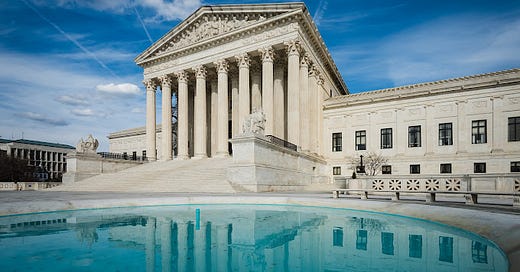US Supreme Court Rules on Presidential Immunity: Full Protection for "Official" Acts
Donald Trump's Election Obstruction Case Sent Back to Lower Court to Segregate Official from Unofficial Acts Before Proceeding.
Question of Presidential Immunity
In a landmark decision pronounced on July 1, 2024, the US Supreme Court ruled on the extent of presidential immunity, specifically concerning former President Donald Trump's actions during his tenure. This closely watched ruling has established that the serving as well as former Presidents have full immunity for all 'official acts' carried out while in office. This verdict has significant implications for the prosecution of former presidents, with due regard to the distinction between official and unofficial acts. In particular, it fundamentally affects Trump's criminal trial for federal election obstruction related to the January 6 Capitol riot. The Court had heard oral arguments in the last week of April and reserved its judgement.
Supreme Court Decision
The Supreme Court ruled in a 6-3 decision along ideological lines that former presidents are immune from prosecution for official actions taken while in the White House but do not have immunity for unofficial acts. Chief Justice John G. Roberts Jr., writing for the majority, stated:
"A president may not be prosecuted for exercising his core constitutional powers, and he is entitled, at a minimum, to a presumptive immunity from prosecution for all his official acts."
However, Roberts clarified that this immunity does not extend to unofficial acts:
"The president enjoys no immunity for his unofficial acts, and not everything the President does is official. The President is not above the law."
Implications for Trump's Trial
The ruling sends Donald Trump’s federal trial back to the lower court to determine which alleged acts are official, before proceeding. This means that the trial, that was initially set to start on March 4, will be delayed further, making it unlikely that Trump will go to trial on charges of trying to subvert the 2020 election before the 2024 presidential election, in which he is the presumptive Republican nominee.
Dissenting Opinions
The Apex Court's three liberal justices, Sonia Sotomayor, Elena Kagan, and Ketanji Brown Jackson, forcefully dissented. Justice Sotomayor wrote:
"The conservative majority gives former President Trump all the immunity he asked for and more. The majority reshapes the institution of the presidency and makes a mockery of the principle that no man is above the law."
Background of the Case
Special Counsel Jack Smith charged Trump with four felonies related to his alleged plan to stay in power after Joe Biden’s 2020 presidential victory. The charges include conspiring to defraud the United States and obstruct the certification of Biden’s win in Congress on January 6, 2021.
Trump challenged the D.C. indictment, claiming that former presidents are immune from criminal prosecution for actions related to their official duties unless first impeached and convicted by Congress. The U.S. Court of Appeals for the D.C. Circuit had unanimously ruled that Trump could be prosecuted for his alleged efforts to disrupt the election results. This ruling was reviewed by the Supreme Court.
Historical Context
The Supreme Court's decision draws on historical precedents, including a case involving President Richard M. Nixon, which stated that the Constitution shields presidents from private civil lawsuits for actions taken as part of their official duties. However, this precedent did not address criminal liability.

Reactions and Future Implications
The decision to hear Trump’s immunity claims halted all preparations for the D.C. federal trial, raising concerns about the timing and potential political implications. Critics argue that the American public should know the outcome of the D.C. trial before casting ballots for the next president on 5th November.
Former President Trump celebrated the court ruling on his Truth Social platform, stating:
"BIG WIN FOR OUR CONSTITUTION AND DEMOCRACY. PROUD TO BE AN AMERICAN!"
Summing Up and Looking Forward
The Supreme Court’s instant ruling on presidential immunity has significant implications for the prosecution of former Presidents and the interpretation of official versus unofficial acts. As the case returns to the lower court, the nation awaits further developments and their potential impact on the upcoming presidential election.
Meanwhile, Donald Trump's sentencing in the unrelated "falsification of business records" case, commonly known as the Stormy Daniels case, remains scheduled for July 11. Trump was found guilty on all 34 counts, and it remains to be seen whether he will receive a prison term from the presiding judge.
If you believe this article would interest someone you know, please feel free to share it anonymously (for us), using any platform that you prefer.





